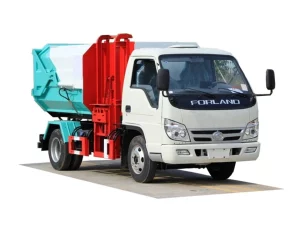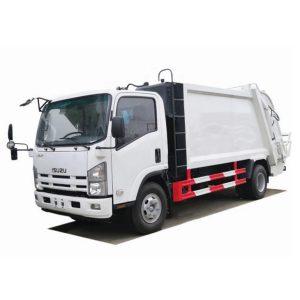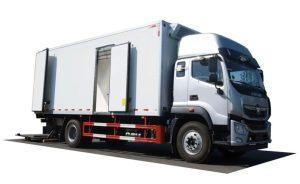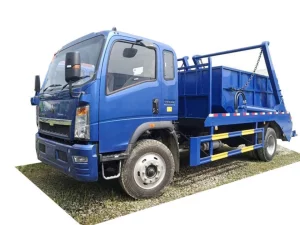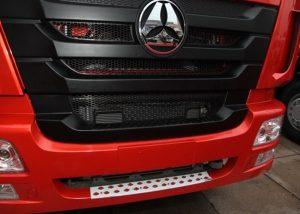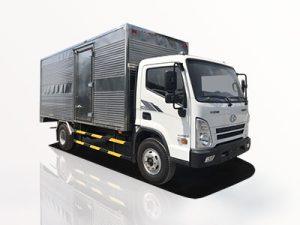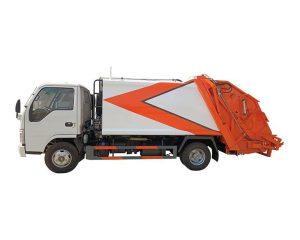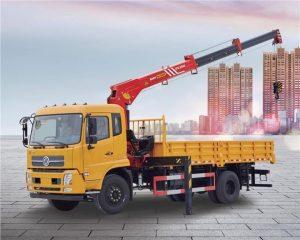Monday to Saturday - 8:00 -17:30
Heavy Rescue Truck for Sale: Your Ultimate Guide to Finding the Right Vehicle
Introduction
When it comes to emergency response and rescue operations, having the right equipment is crucial. Among the essential tools for any rescue team is a heavy rescue truck. These vehicles are specifically designed to facilitate complex rescues and are equipped with the latest technology and tools. In this comprehensive guide, we will explore everything you need to know about heavy rescue trucks for sale, including their features, types, costs, and how to choose the right one for your needs.
What is a Heavy Rescue Truck?
A heavy rescue truck is a specialized vehicle designed for emergency response situations that require advanced rescue techniques. Typically utilized by fire departments, search and rescue teams, and other emergency services, these trucks are equipped with tools and equipment for extrication, patient care, and firefighting. They may include hydraulic tools, medical equipment, and personnel space, allowing for a comprehensive response to various emergencies.
Key Features of Heavy Rescue Trucks
- Hydraulic Rescue Tools: Often referred to as “Jaws of Life,” these tools help in cutting and spreading metal in accident situations.
- Medical Equipment: Heavy rescue trucks are typically outfitted with basic life support systems and medical supplies.
- Extrication Tools: Equipment such as airbags and stabilizers that assist in safe patient removal from vehicles.
- Storage Space: These trucks have ample storage for a variety of tools and equipment, tailored to the specific needs of the rescue team.
The Importance of Heavy Rescue Trucks in Emergency Services
Heavy rescue trucks play a pivotal role in emergency services by providing immediate assistance in various scenarios, including vehicle accidents, building collapses, and natural disasters. Their importance can be highlighted in the following areas:
1. Efficiency in Emergencies
When seconds count, heavy rescue trucks allow emergency responders to arrive on the scene quickly with all essential tools. Having a well-equipped vehicle minimizes response time and maximizes effectiveness in a crisis.
2. Versatility
Heavy rescue trucks can handle a wide range of emergencies, from vehicle extrications to hazardous material incidents, making them an invaluable asset for any fire department.
3. Safety for Personnel and Victims
With specialized equipment designed specifically for rescue operations, these trucks enhance both the safety of the rescuers and the individuals they aim to assist.
Types of Heavy Rescue Trucks
Heavy rescue trucks come in various configurations and sizes, tailored to meet specific operational needs. Here are the most common types:
1. Type I Heavy Rescue Trucks
These trucks are the most common configuration, featuring a large cab and ample space for equipment and personnel. They are ideal for urban environments where quick access is paramount.
2. Type II Heavy Rescue Trucks
Usually based on a smaller chassis, Type II trucks are more maneuverable and ideally suited for rural settings. They can navigate tighter spaces while still being effective in rescue operations.
3. Multi-Purpose Heavy Rescue Trucks
These versatile vehicles combine firefighting abilities with rescue functions, providing a comprehensive response capability in various emergencies.
Factors to Consider When Buying a Heavy Rescue Truck
Purchasing a heavy rescue truck is a significant investment, and careful consideration is required to make the best choice. Here are key factors to keep in mind:
1. Budget
Establishing a budget is crucial. Heavy rescue trucks can range from $100,000 to over $500,000, depending on features and customization options.
2. Equipment Needs
Identify the specific equipment necessary for your operations. Consider what tools and technology are essential based on the types of emergencies you commonly encounter.
3. Vehicle Performance
Performance attributes such as towing capacity, engine power, and maneuverability are essential in selecting a truck that fits your needs.
4. Manufacturer Reputation
Consider well-reputed manufacturers with a strong history of producing reliable emergency vehicles. This can often impact service and maintenance support.
Where to Find Heavy Rescue Trucks for Sale
Finding the perfect heavy rescue truck for sale can be daunting if you don’t know where to look. Here are some reliable sources:
1. Authorized Dealers
Visit authorized dealerships that specialize in emergency vehicles. They often have new models as well as certified used trucks.
2. Online Marketplaces
Websites such as eBay, FireRescue1, and specialized rescue vehicle platforms can provide listings of heavy rescue trucks available for sale.
3. Auctions
Government and municipal auctions can be great places to find well-maintained used heavy rescue trucks at lower prices.
4. Industry Trade Shows
Attending fire services and emergency response trade shows allows you to see various options, meet manufacturers, and learn about the latest technology.
Financing Options for Heavy Rescue Trucks
Financing can make the purchase of a heavy rescue truck manageable. Here are some options to consider:
1. Bank Loans
Traditional bank loans often provide competitive interest rates for purchasing vehicles. Be prepared to present your business plan and financial health.
2. Equipment Financing
Many companies offer specialized financing options designed specifically for emergency vehicles, which may provide longer repayment terms.
3. Grants and Funding
Investigate available grants from state and federal programs aimed at supporting local fire departments and rescue operations.
Maintenance and Care for Heavy Rescue Trucks
Maintaining your heavy rescue truck is critical for ensuring it operates efficiently when needed. Here are practical maintenance tips:
1. Regular Inspections
Implement a schedule for regular inspections, focusing on key areas such as brakes, tires, lights, and hydraulic systems.
2. Routine Servicing
Ensure that the truck undergoes routine servicing by certified mechanics, adhering to manufacturer recommendations.
3. Clean and Store Properly
After responses, thoroughly clean the truck to prevent corrosion and store it in a protected environment to extend its lifespan.
Popular Brands of Heavy Rescue Trucks
Several brands are well-known in the heavy rescue truck market for offering durable and efficient vehicles. Here are a few you may consider:
1. Pierce Manufacturing
Known for custom fire and rescue vehicles, Pierce offers a range of heavy rescue trucks with innovative designs.
2. Rosenbauer
Rosenbauer is significant in the emergency vehicle market, delivering robust trucks optimized for performance in challenging conditions.
3. E-One
With a focus on American-built vehicles, E-One has established a reputation for reliable heavy rescue trucks equipped with modern features.
Cost Estimation Table
| Truck Type | Average Cost Range | Key Features |
|---|---|---|
| Type I Heavy Rescue Truck | $300,000 – $500,000 | Large cab, extensive storage, advanced hydraulic tools |
| Type II Heavy Rescue Truck | $150,000 – $250,000 | More maneuverable, basic equipment, suited for rural settings |
| Multi-Purpose Heavy Rescue Truck | $200,000 – $400,000 | Combines firefighting and rescue features, adaptable design |
Frequently Asked Questions (FAQs)
1. What is the typical lifespan of a heavy rescue truck?
The lifespan of a heavy rescue truck can vary, but with proper maintenance, it can generally last 10 to 20 years.
2. Are used heavy rescue trucks a good investment?
Yes, used heavy rescue trucks can be a cost-effective investment if they are well-maintained and come from reputable sources.
3. Do heavy rescue trucks require special licensing?
Yes, operators may need special training and licensing due to the vehicle’s size and the specialized equipment onboard.
4. How often should heavy rescue trucks be serviced?
Heavy rescue trucks should undergo regular maintenance checks at least twice a year, along with daily inspections before use.
5. Can a heavy rescue truck be customized?
Yes, many manufacturers offer customization options for heavy rescue trucks to suit specific operational needs.
6. What kind of insurance is required for heavy rescue trucks?
Liability insurance is typically required, along with additional coverage based on the equipment and value of the vehicle.


